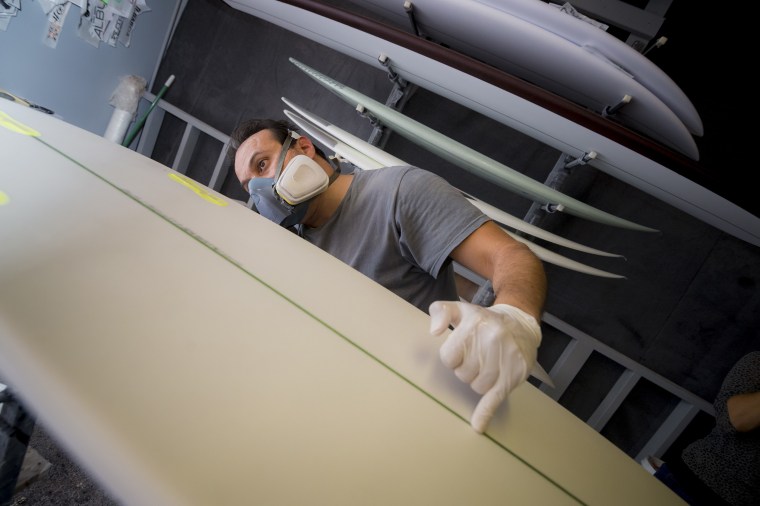Researchers have found a way to create surfboards without using fossil fuels, something which may allay the concerns of many eco-conscious wave riders. "As surfers more than any other sport, you are totally connected and immersed in the ocean environment," explained lead researcher (and surfer himself) Stephen Mayfield, of UC San Diego. "And yet your connection to that environment is through a piece of plastic made from fossil fuels."

The strong yet flexible foam core is usually made of polyurethane, which in the past has been petroleum-based. But Mayfield's team managed to create an almost identical product from oil obtained from algae. Petroleum itself was originally algae oil, Mayfield points out, but fossilized over a few hundred million years.
Reducing the carbon footprint of the board creation process is good, but doesn't solve the problem of what to do with the board later. Old boards may just be tossed in the ocean and left to disintegrate into chunks and particles of toxic polyurethane for marine animals to ingest. And there's still the fiberglass and resin that coat it. Truly environmentally conscious surfers might still want to go for an old-school (and expensive) wood board, but the algae-based ones are at least a paddle in the right direction.
IN-DEPTH
- Ultratide Smartwatch Lets You Know When the Surf's Up
- Surfing Dogs That Can Ride a Wave Better Than You
- Great White Takes A Bite Out of Surfboard